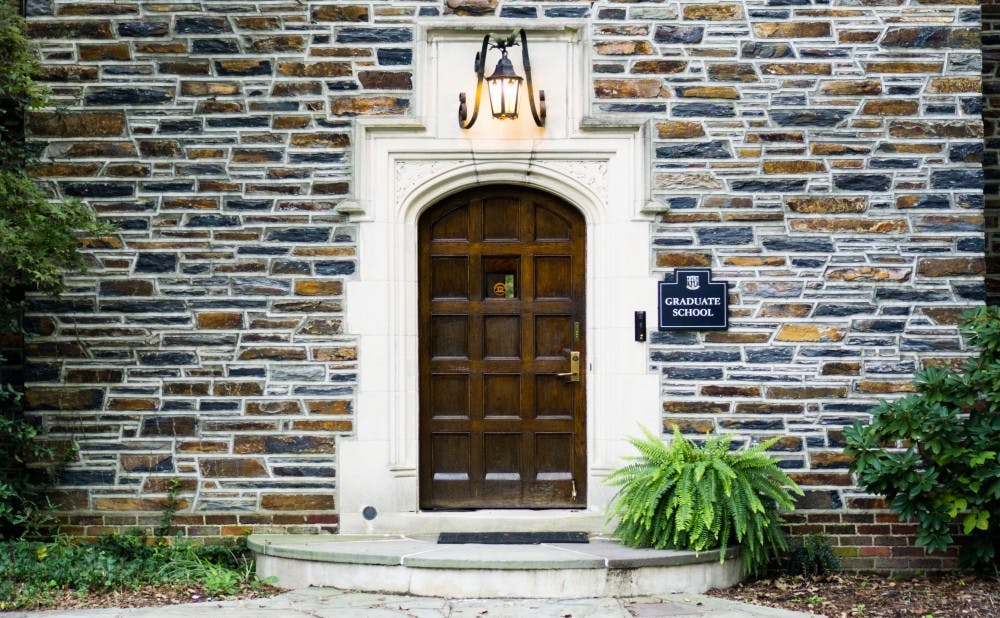As job prospects in academia become grimmer, Duke's graduate programs in the humanities are helping its students explore other career options.
In August, the University received a three-year $350,000 grant from the National Endowment for the Humanities, which will be used to enhance curriculum and expand career opportunities, said Paula McClain, dean of the Graduate School and vice provost for graduate education.
“Getting the grant from the NEH is recognition of Duke’s effort in preparing its Ph.Ds in humanities for different career pathways," she said. "We don’t call it ‘alternative pathway.' Our view is that there are so many things that an individual can do with a Ph.D. in humanities, [and that] we just need to help them decide what they will do.”
She added that the graduate school is in the process of hiring a professional to work with Ph.D. students in the humanities on internship opportunities and additional professional development.
While acknowledging that the number of tenure-track teaching positions has indeed became fewer, McClain said that humanities Ph.D. students in the past have found their niche in fields such as academic administration, non-governmental organizations and academic publishing.
Current Ph.D. students echoed McClain's sentiments, saying that they are generally aware of opportunities for careers outside of academia.
“People are exploring both options simultaneously as they move on to the completion of their degrees, weighing their options and making their decisions,” said Claire Scott, a fifth year Ph.D. candidate under the Carolina-Duke Graduate Program in German studies. “I definitely have explored other options, and an alternative career path is something on my radar too.”
Scott—who graduated from Dartmouth College with a degree in German studies—said she plans to enter academia after completing her Ph.D., but has also organized a series of professional development workshops through a grant from the graduate school, which inform students about career opportunities other than becoming a tenure-track professor.
For some of Duke's humanities departments, however, academia is still the primary place where Ph.D. students ultimately end up.
“There are other things you can do with a Ph.D. in English, but what we do best is prepare people to become tenure-track professors at universities in general,” said Robert Mitchell, Marcello Lotti professor of English and director of graduate studies in the English department.
Mitchell added that according to recent and past surveys, the percentage of Duke English Ph.D. graduates who have a tenure job within three years of graduation is about 80 percent, which is significantly better than peer institutions such as Yale and Harvard, for which the percentage is around 60 percent.
Due to this success, the English department has not been focused much on alternative careers, Mitchell noted.
“It may be different for other departments," he said. "[In] biology, the goal might be to send some into academia and some to industry, but for us, the English department, the clear job you are heading for is tenure-track jobs."
However, the doctoral program in English at Duke is relatively small and highly selective. The program usually admits 10 students per year from about 300 applications, Mitchell said.
Scott emphasized that students in humanities should not be discouraged from pursuing a Ph.D. degree simply because of how job prospects may appear.
“The job market is tight right now, there aren’t as many jobs in humanities field as there used to be, but just because there [are] fewer jobs doesn’t mean [a Ph.D. in humanities] is not worth pursuing," she said. "The skills that you learn in the humanities—communication skills, close reading skills, how to engage with different types of media—all those skills are very transferable to a lot of professions."
Get The Chronicle straight to your inbox
Signup for our weekly newsletter. Cancel at any time.

